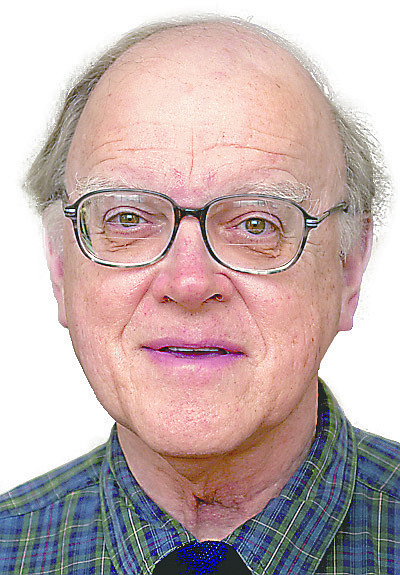Carefully chosen and thoughtfully assembled, words can guide us through sorrow and fear and strengthen us for challenges that we will face.
President Lincoln set a standard for the ages with his Gettysburg Address, delivered Nov. 19, 1883, at the dedication of the National Cemetery at the site of the bloody battle of July 1-3.
"... that we here resolve that these dead shall not have died in vain, that this nation under God, shall have a new birth of freedom, and that government of the people, by the people, for the people shall not perish from the earth."
Winston Churchill repeatedly consoled and inspired his countrymen, especially during the grim, early months of World War II. Addressing Parliament on June 4, 1940, as the evacuation from Dunkirk of British and French troops was concluding: "Our losses now have exceeded 30,000, killed, wounded, or missing. I take this occasion to express sympathy of the House to all who have suffered bereavement or who are still anxious." He concluded his address with a challenge: "We shall defend our island, whatever the cost may be, we shall fight on the beaches, we shall fight on the landing grounds, we shall fight in the fields and in the streets, we shall fight in the hills; we shall never surrender." In dark times, he expressed sympathy while calling forth the best in his listeners.
On the evening of Martin Luther King, Jr.'s assassination, April 4, 1968, Sen. Robert Kennedy, who was campaigning for the Democratic nomination for president, addressed an African-American crowd in Indianapolis, Indiana. Standing in the bed of a pickup truck, he spoke:
"I have bad news for you, for all our fellow citizens; and people who love peace all over the world, and that is that Martin Luther King was shot and killed tonight. Martin Luther King dedicated his life to love and to justice for his fellow human beings, and he died because of that effort ... . What we need in the United States is not division; what we need in the United States is not hatred; what we need in the United States is not violence or lawlessness; but love and wisdom and compassion toward one another and a feeling of justice toward those who still suffer within our country, whether they are black or white."
President George W. Bush addressed a shocked nation on Sept. 14, 2001, at a service in Washington's National Cathedral. "Our unity is a kinship of grief and a steadfast resolve to prevail against our enemies ... On this national day of prayer and remembrance, we ask Almighty God to watch over our nation and grant us patience and resolve in all that is to come."
President Obama repeatedly consoled and called us to follow our "better angels" when he spoke after massacres at Fort Hood, Sandy Hook Elementary School, and the shooting at Emanuel AME Church in Charleston, South Carolina. He concluded his remarks from the White House the day after the murderous rampage at the church: "Mother Emanuel Church and its congregation have risen before from flames, from an earthquake, from other dark times to give hope to generations of Charlestonians, and with our prayers and our love and the buoyancy of hope, it will rise again now as a place of peace."
Tweets are increasingly becoming a shorthand to employ at times of tragedy and loss. "Thoughts and prayers" becomes an empty slogan to offer to people and to communities coping with grief that had previously been unimaginable. A tweet is launched almost automatically with little thought about content. If not the president or other national leaders, who can articulate the losses sustained by survivors of mass shootings and natural catastrophes? Who can call us to muster courage and compassion after severe losses?
This spokesperson will feel the loss and prayerfully search for the words that can reach deep into the souls of listeners to lift spirits and to summon courage for threatening times.
Contact Clif Cleaveland at ccleaveland@timesfreepress.com.
